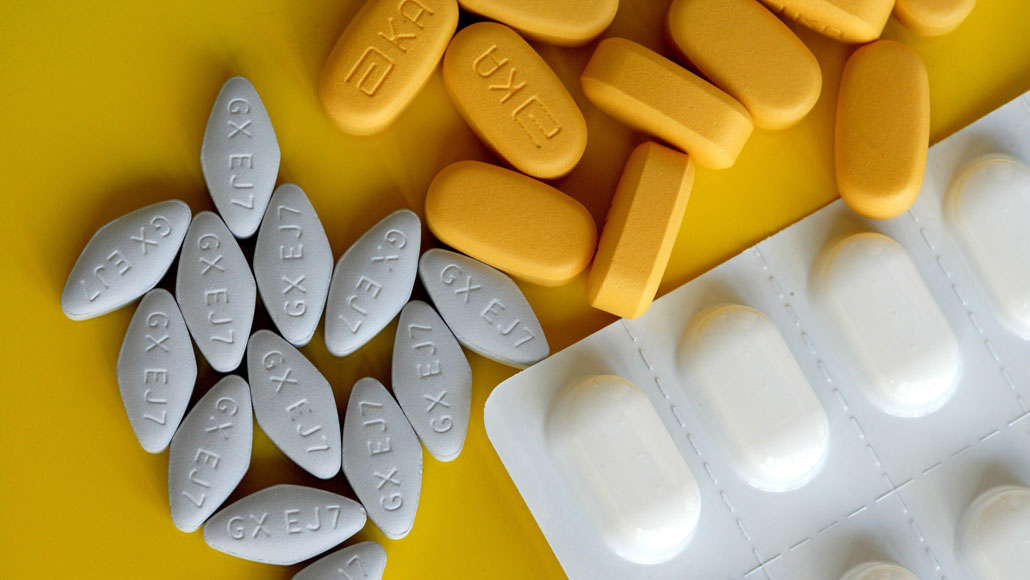HIV drugs didn’t work as a coronavirus treatment in a clinical trial
Antivirals called lopinavir and ritonavir ‘showed no benefit’ when given to severely ill people

A combination drug used to treat HIV failed to effectively treat people ill with pneumonia caused by COVID-19.
Phanie/Alamy Stock Photo
Doctors, researchers and health officials scrambling to find treatments for coronavirus-infected patients may have had one hope dashed.
Researchers had hoped that antiviral drugs used to treat HIV might also work against the coronavirus, known as SARS-CoV-2 (SN: 3/10/20). Both HIV and the coronavirus need an enzyme called a protease to make infectious virus. The drugs inhibit the action of the protease.
A trial of 199 people randomly assigned to get the drugs plus standard care — including supplemental oxygen, antibiotics for follow-on bacterial infections and other measures as needed — or standard care alone has deflated those hopes. The trial in Wuhan, China, tested the HIV drugs, called lopinavir and ritonavir, on people who were severely ill with pneumonia caused by COVID-19.
Comparing outcomes from 94 people who got the drugs with results from 100 patients who received standard care showed no benefit to the drugs, researchers report March 18 in the New England Journal of Medicine.
The drugs shortened the time it took to see clinical improvement from 16 days in the standard care group to 15 days in the treatment group. But that slightly shorter improvement time happened only for people who got the drugs within 12 days of symptoms appearing. That finding may suggest that the people in the trial were too ill already to benefit from the drugs, and treatment earlier in the infection may work better, the researchers suggest. That possibility has not yet been tested.
The HIV drugs didn’t stop viral replication as measured by testing for RNA, the virus’s genetic material. Researchers don’t know whether people who got the drugs produced fewer infectious viruses.
Severe diarrhea or other gastrointestinal symptoms caused 13 patients to be taken off the HIV drugs.
Slightly fewer people taking the HIV drugs died than in the standard care group, but the result is hard to interpret because of the small number of people in the trial and because the standard care group appears to have been sicker from the beginning of the trial, an editorial also published March 18 in the New England Journal of Medicine notes.
Other drugs being tested against the coronavirus include remdesivir, a drug that inhibits RNA replication and the antimalaria drug, chloroquine. Side effects of chloroquine include heart problems, low blood sugar, blurry vision, muscle weakness and dizziness. A less toxic version of chloroquine called hydroxychloroquine prevented SARS-CoV-2 from easily infecting monkey cells in lab tests, researchers report March 18 in Cell Discovery.
President Donald Trump announced March 19 in a White House news conference that the U.S. Food and Drug Administration would make hydroxychloroquine available to treat patients “almost immediately.” Because the drug is approved for other uses, doctors may be able to prescribe it for “compassionate use,” which allows doctors to treat people with life-threatening diseases or conditions with experimental drugs when no other options are available. But the drug hasn’t been shown to work against the virus in trials of people.

Trustworthy journalism comes at a price.
Scientists and journalists share a core belief in questioning, observing and verifying to reach the truth. Science News reports on crucial research and discovery across science disciplines. We need your financial support to make it happen – every contribution makes a difference.







